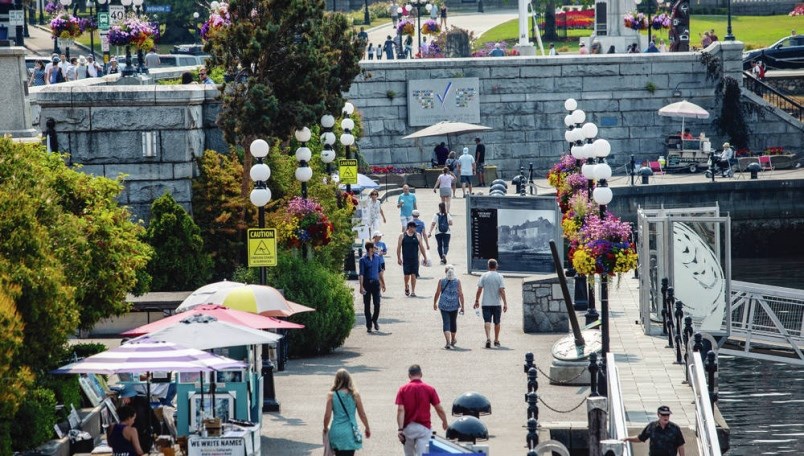A tourism industry that is unlikely to see any kind of real recovery for years is going to require continued help until at least next summer, according to the Tourism Industry Association of BC and Tourism Industry Association of Canada.
In pre-budget submissions to the federal government, released this week, the industry associations have asked for financial support and relief measures to continue until May of next year, a tax incentive to Canadians to stimulate travel within Canada in 2022 and 2023, and a review of immigration programs to streamline the process of bringing foreign workers to this country to alleviate a labour shortage.
Walt Judas, chief executive of the B.C. association, said without a completely open border to foreign visitors, the industry will continue to suffer.
“A lot of other sectors are back on track and some are excelling, but for tourism it will be a long time before it recovers to a pre-pandemic level,” he said, noting because the border with the U.S. only recently opened with restrictions, the industry is facing a second year of having to rely heavily on domestic tourism. “And we’ve shown we can’t survive on domestic travel alone.”
The industry hopes to see federal relief measures, particularly the wage subsidy and rent subsidy — lifelines heavily relied upon over last 18 months — continued until next year, and more money made available in low or no-interest loans to the large, core businesses that anchor the industry in most provinces.
“We still need access to liquidity,” he said.
“Everyone may be thinking of recovery, but we are nowhere near recovery just yet.”
As for the large operators, Judas noted many could not access much of the relief funding and, in many cases, the relief just added debt to their bottom line.
The industry is also pushing for a streamlined path to citizenship for foreign workers, and using jobs in hospitality to help those new Canadians establish themselves.
Judas said tourism needs a large number of workers with a variety of skills to take on jobs that traditionally have been difficult to fill with Canadians.
He is pushing the idea of offering residency, and ultimately citizenship, as incentives to attract foreign workers, but that would require a streamlined federal immigration process for those workers.
Destination Greater Victoria chief executive Paul Nursey agreed.
“I’ve always viewed the biggest opportunity in hospitality is as a pathway to citizenship for new Canadians. It’s a great opportunity for people to come from other countries, get acclimatized to the society, work and perhaps move onto other industries,” he said. “Our industry is willing to do the training.”
Nursey said if there was a simplified means for immigrants to enter Canada and its workforce without getting bogged down in credentials, the tourism industry would train them and help them get established.
Judas would also like to see workers here on temporary work permits have access to a fast track to permanent residency.
Nursey said if there is one watchword for those putting together the next federal budget it’s stability.
“I don’t want government to tinker with any of the systems in place,” he said, noting that means relief measures and marketing programs would stay as-is until next year. “Now is not time to tinker with the framework.
“We need immigration to return to help on the labour side of things and targeted [relief] measures through the winter based on revenue declines,” he said.
He also said it would be the perfect time for a senior level of government to seriously consider tourism infrastructure projects like the Belleville Street Terminal or the Royal BC Museum.
“It’s time to focus on infrastructure right across Canada.”



